Discloses Head of Economy Division (Presently Acting Trade Representative) of the Russian Federation in the Republic of Korea Oleg Pirozhenko
Head of Economy Division (Presently Acting Trade Representative) of the Russian Federation in the Republic of Korea Oleg Pirozhenko said, “First, Russia welcomes Korean businesses cooperation in biofuel, transportation, IT and many other areas.” Speaking at a recent interview with The Korea Post media, publisher of 3 English and 2 Korean-language news media since 1985, Oleg Pirozhenko noted that “in recent years, demand for wood pellets used both in power plants and in residential buildings has been increasing in Korea.”
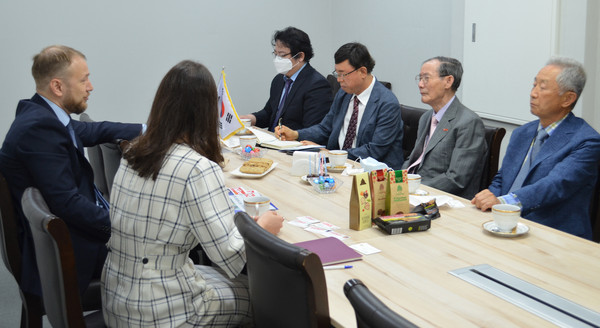
The Trade Representative of the Russian Federation in the Republic of Korea, Mr. Alexander Masaltsev, who previously contributed an interview and an article to The Korea Post, is presently in Yekaterinburg, Russia for participation in INNOPROM Platform, a set of exhibition events, online sessions, congresses and educational workshops on industry and trade.—Ed.
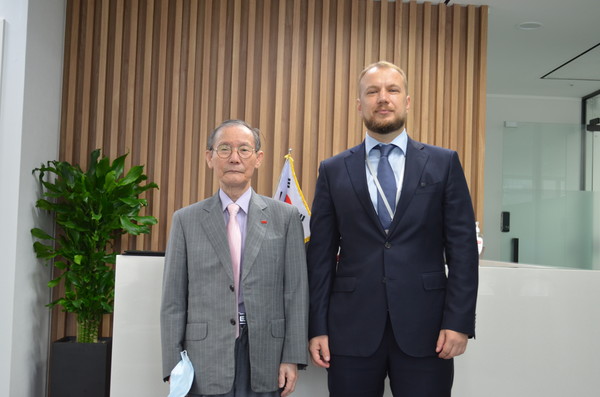
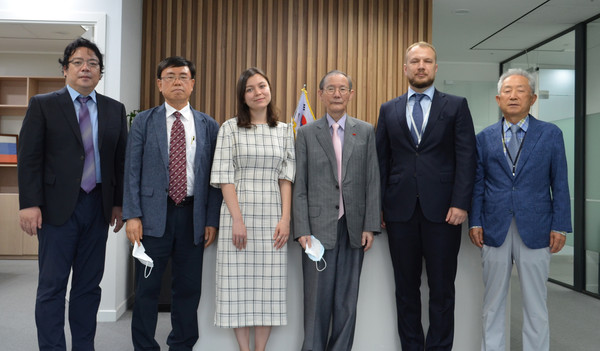
Question: In which areas of your country do you want Korean companies to invest, and in which areas do you want your businessmen to invest in Korea?
Answer: It is no secret that in the commodity nomenclature of Russian exports, the first positions are still occupied by mineral resources. I would like to focus on areas that will help optimize bilateral trade structure. I'll start with specific examples in those industries in which, even in the context of a pandemic, we have been building up our cooperation.
First, it is biofuel. In recent years, the demand for wood pellets used both in power plants and in residential buildings has been increasing in the Republic of Korea. This type of fuel is considered environmental friendly as when burning pellets, the emission of carbon dioxide is much lower.
Russian production of wood pellets is growing steadily and is export-oriented; further prospects for the industry are associated with the expansion of supplies abroad. Bilateral cooperation in the field of biofuels could develop not only along the path of direct export. It is promising to attract Korean partners to invest in long-term projects of wood fuel production in Russia. The repayment of such investments could be carried out, among other things, by deliveries of finished products, or by discounts on them.
From the point of view of the prospects for scaling up trade and investment cooperation, trade in services, for example, in the field of transport and information technology, deserves close attention. Favorable prospects for cooperation in the field of transport, of course, in the medium and long term, are determined by the geographical position of the two countries, their growing integration into the international transport space. Russia continues to increase the intensity of traffic along the Eurasian transport corridors, modernize port infrastructure and border checkpoints, and improve regulations accordingly. For the growth of export of services in this area, the implementation of the project for the development of the Northern Sea Route is of particular importance.
Another promising segment of bilateral cooperation is the export of business services, primarily in the field of information technology. The Russian Federation ranks 7th in the world in terms of the number of applications for patents for inventions. It is reasonable to focus on technologically complex segments such as platform and infrastructure solutions, engineering and scientific software, artificial intelligence, robotic medicine and mechanotherapy, the Internet of things and computer vision, and big data. Here we also have stories of successful engagement despite the pandemic. In October last year, a number of agreements on technological cooperation were signed between Russian and South Korean counterparties, the key of which was the Memorandum of Understanding on attracting investments between the South Korean province of Gyeonggi, ExoAtlet JSC and the New Industry Venture Fund. ExoAtlet is a Russian company, headquartered in Moscow, it develops and manufactures exoskeletons, creates new effective methods for the rehabilitation of patients with the consequences of spinal cord injury, stroke, cerebral palsy, and multiple sclerosis.
Q: Which large Korean companies are actively involved in bilateral economic cooperation? And what are the largest Russian companies operating in Korea?
A: Many large South Korean companies are already represented in Russia. Factories of LG Electronics, Samsung Electronics, KT&G, Lotte Confectionery are operating successfully. Lotte Hotel company manages hotels in Moscow, St. Petersburg, Vladivostok. September 2020 marked the 10th anniversary of the opening of the Hyundai Motor Manufacturing Rus plant in St. Petersburg, and this business continues to expand: on October 25, 2019, the South Korean company Hyundai WIA, within the framework of the concluded Special Investment Contract, is finishing construction of a plant for the production of automobile engines in St. Petersburg.
The Korea Land and Housing Corporation (LH) announced on May 17 that it had completed consideration of the creation of a Russian subsidiary that will lead the project to create an "Industrial Complex for Economic Cooperation between Russia and South Korea in the Primorsky Territory." A groundbreaking ceremony is planned in conjunction with the start of the 9th Eastern Economic Forum in Vladivostok in September.
As for the Russian companies operating in the South Korean market, then, of course, our suppliers of energy resources are currently the most extensively represented, these are Gazprom, Rosneft, Mechel and others. But I would like to say a few words about success stories in non-energy sectors that open up new opportunities. For example, within the framework of an export contract, the Russian company LLC Firm "Grikol-Limited" supplied to the Republic of Korea 300 tons of anti-ice filler "Grikol". According to the experts of the Korean Highway Corporation, who carried out the examination of the Russian product, in terms of its technical and operational characteristics, Grikol fully meets the high requirements of the South Korean roadbed standards. The construction of a plant for the production of "Grikol" based on the Russian component, which is supposed to be exported to South Korea from Russia on a permanent basis, is at the final stage. Not everyone knows that Russian-made helicopters have been successfully used by the rescue and firefighting services in Korea for several years. Russian helicopters received high recognition for their reliable technology.
Q: What is the current volume of trade, its prospects for the next 12 months? What goods and services from Russia are most welcomed in Korea. Conversely, what Korean goods and services are popular in Russia?
A: Significant volumes of Russian exports are accounted for by oil products, coal, LNG, as well as seafood and metals. With regard to Korean exports, perhaps every Russian household has electronics, appliances, cars and much more produced in the Republic of Korea.
In 2020, under the pandemic circumstances, our bilateral trade decreased by 19.4% and amounted to US $ 19.6 billion. According to this indicator, South Korea became 9th among foreign countries and 2nd among Russia's foreign trade partners in East Asia (after China) by trade volume. Russian imports amounted to 7.2 billion, exports – to 12.4 billion. According to the Federal Customs Service of Russia data, the Russian-South Korean trade turnover in the first quarter of 2021 compared to the same period last year increased by 135% and amounted to USD 6.68 billion, exports increased by 84% to USD 2.85 billion, imports - by 247% to $ 3.84 billion. So the crisis can create not only threats, but also new opportunities for the development of mutually beneficial cooperation. I am convinced that the mutual interest of consumers from both countries will create sufficient potential for growth.
Q: As presently Acting Representative of the Russian Trade Representation in Korea, please introduce yourself fully together with the activities of your Representation.
A: My name is Oleg Pirozhenko, presently I perform duty of the Acting Trade Representative of the Russian Federation in the Republic of Korea. I graduated from the Moscow State University majoring in Korean studies, and received a Masters’ degree of the Koryo University in Seoul. I have worked in fields related to Russian-Korean cooperation for more than 15 years, of which about 8 years - at the Russian Embassy in Seoul. Now I am the head of the Economic Division of the Trade Representation of the Russian Federation in the Republic of Korea.
Our main task here is to establish and develop trade relations between individuals and entities of the two countries, to promote Russian non-resource, non-energy exports and investment projects.
Q: Please introduce the Minister of State responsible for trade and industry in your country.
A: Minister of Industry and Trade of the Russian Federation - Denis Valentinovich Manturov. He was born in 1969, graduated from the Moscow State University (MSU), received a postgraduate degree of Candidate of Economic Sciences in 1997. In 1998, he was appointed Deputy General Director of Ulan-Ude Aviation Plant, in 2000, Commercial Director of Mil Moscow Helicopter Plant, in 2001 - Deputy Chairman of State Investment Corporation, in 2003 - General Director of OPK Oboronprom, in 2007 - Deputy Minister of Industry and Energy of the Russian Federation, May 19, 2008 - Deputy Minister of Industry and Trade of the Russian Federation. Since February 2012, he has been the head of the Ministry of Industry and Trade. The Minister was awarded the Order of Friendship, the Order of Honor, the fourth-class Order of Merit for the Motherland.
Q: Who is responsible in the non-governmental sector in Russia for promoting trade and economic cooperation with Korea?
A: Several organizations and specialized associations are actively operating in Russia, which carry out the task of supporting trade and economic cooperation with foreign countries. These are, first of all, the Russian Export Center, the Russian Direct Investment Fund, the Chamber of Commerce and Industry of the Russian Federation, the All-Russian Public Organization "Business Russia". Among the organizations specialized in Russian-South Korean cooperation, one can mention the Public Forum Korea-Russia Dialogue, which has been successfully operating since 2008, the Russian-Korean Business Council, the Business Club under the aegis of the Trade Representation of the Russian Federation in the Republic of Korea and some others.
Q: The Korean people, especially the Korean businessmen, need rest and recuperation. What sights do you have?
A: Now the main trends in the development of the world market of tourist services are the growing popularity of active travel, incl. selection as independent directions of gastronomic and ecological tourism. Russia's obvious advantages in this area are determined by the unique geographical conditions of our country and its rich cultural heritage. In the last two or three years, there has been a real boom in South Korean tourism in Russia, not only Moscow, St. Petersburg, but also Baikal and the Russian Far East. The inflow of South Korean tourists is facilitated by the visa waiver regime introduced between our countries in 2014.
Q: What are the most important public holidays in your country?
A: In Russia, one of the most popular family holidays is the New Year. The tradition of celebrating this holiday on January 1 dates back to the reign of Emperor Peter the Great. Important attributes of the New Year: the chiming clock during which it is necessary to make a wish, the solemn address of the State Leader to the citizens of the country. A lot of folk traditions are connected to the celebration: It is customary to dress in new and better clothes on New Year's Eve, since if you enter the New Year with new clothes, you will wear new clothes for a whole year. Some also believe that you cannot give money on New Year's Eve, otherwise you will have to give it away all year round. Before the New Year it’s advisable to pay off all debts in advance, forgave all offenses, and those who were in a quarrel were obliged to make peace. You can't sleep on New Year's Eve either, otherwise the whole year will pass sluggishly and uninteresting (with the exception of children under the age of 7 of course). The New Year's table should be bursting with food and wine, so that life is rich and fun all year round.
The holy day for every Russian is May 9, when the Victory of the Soviet people in the Great Patriotic War of 1941-1945 is celebrated. The more time passes after the war, the more and more obvious becomes the colossal global historic significance of the Great Victory. It predetermined the fate of the whole world, having saved many peoples from the threat of fascism. It is a holiday that has always been and will remain a sacred day for Russia, for our nation, for we are proud relatives and descendants of those who crushed Nazism. So we gratefully celebrate the memory of an entire generation of great heroes and dedicated workers, and remember our frontline fighters, brave partisans and members of the underground resistance. Our veterans, their fates and loyalty to the Motherland is the example we follow. On this day it is a tradition of watch a military parade on the Red Square, remember the heroes of each and every family, pay tributes of respect to the older generation.
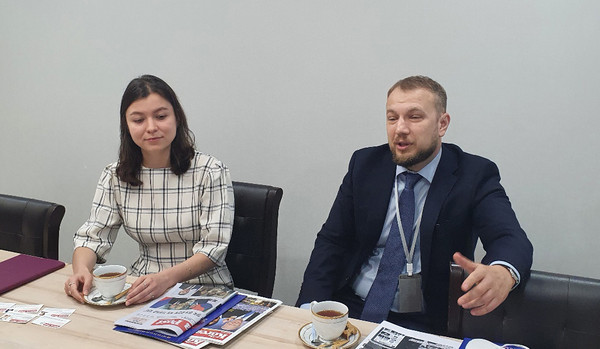
Today we would love to welcome you with a small tea ceremony and make presentation of Russian foods. We hope that you will enjoy it!

It is worth mentioning that on June 12 was celebrated another one of the most significant public holidays – Russia Day. This day unites our large and multinational country with its centuries-old traditions and historical heritage. The multi-ethnic culture is reflected in the variety of Russian dishes. Traditional dishes include beet soup - "borsch", cabbage soup, dumplings, pancakes, pies and much more.
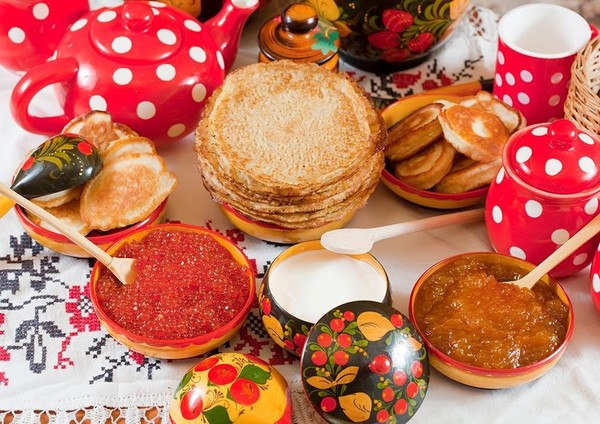
In Russia, after the main meal, it is customary to drink tea with various sweets. Meetings for a tea described vividly especially in stories of the Russian writer Anton Chekhov, where is narrated about tradition of continuous and plentiful ‘tea ceremony’: "he always drank tea for a long time, in Moscow style, seven glasses at a time.” Tea drinking has become meaningful part of Russian people life, now it is an indispensable everyday attribute. One of the Russian proverbs says, “with tea you will live till hundred years old."
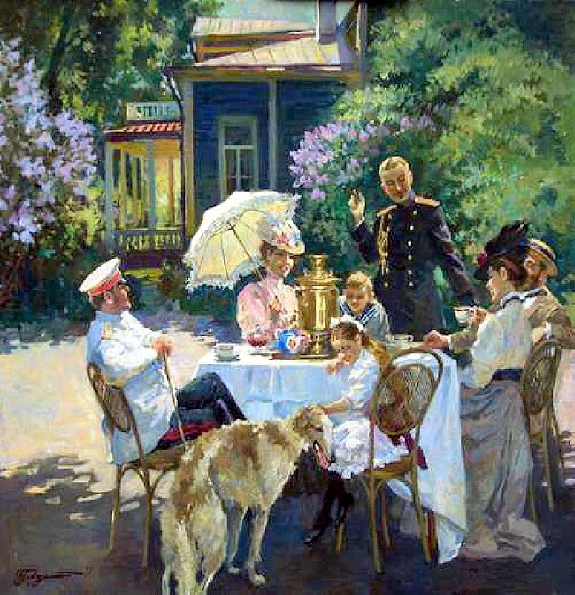
Sweet treats are also an important part of tea ceremony. It should be noted that variety and natural ingredients distinguish Russian confectionery products.
Russian producers can offer South Korean consumers’ healthy food that is certainly important during Covid-19 outbreak. In particular, currently one of the largest Russian food companies “Foodcode” is eager to enter the Korean market. The firm produces gluten-free bakery and confectionery products with high nutritional value and excellent taste from safe and pure raw materials, without using artificial additives, flavor enhancers or preservatives. Products of “Foodcode” have European certificates and are in high demand in Russia.

Another promising company is “Siberian Pine”. Pine nuts are quite expensive in Korea, however as we know they contain wide range of vitamins and beneficial trace elements. We believe that Russian sweets and jellies containing pine nuts without flavors can become a great alternative. The main components of the company's confectionery products - nuts and berries - are harvested in the ecologically clean forests of Siberia. Russian products can help to maintain health in a sweet and delicious way!
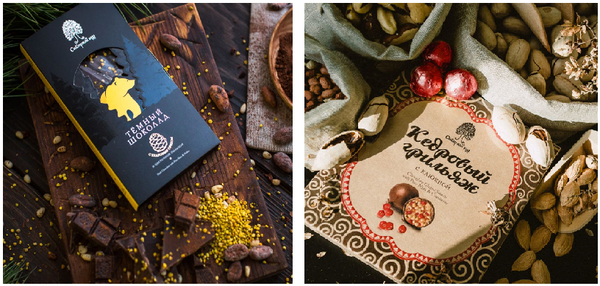
The presentation of the products was made by Ms. Karina Khalikova, expert of the Trade representation of the Russian Federation in the Republic of Korea. She is in charge of works related to the development of agricultural cooperation between Russia and Korea, promotion of Russian food producers to Korean market.

